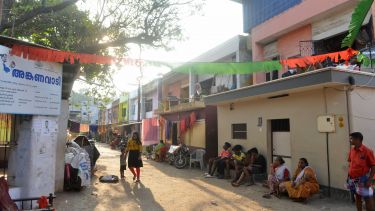About the Project

This project, funded through the British Academy’s Tackling Global Challenges programme, has examined the impact of the Covid-19 pandemic on India’s cities, and in particular on the lives of people living in low-income neighbourhoods. The project has worked comparatively across three cities (Ahmedabad, Gujarat; Chennai, Tamil Nadu; and Thiruvananthapuram, Kerala).
The project’s methodology has been based around both primary and secondary data. Secondary data collection began in early 2021 with a detailed look at the pandemic as it unfolded in each of these cities, viewed through a systematic search of local English and vernacular quality papers, backed by other media and reporting. This was coupled with analysis of the range of government responses to the pandemic, tracked through relevant Departments/Ministries at all levels of the government.
Primary data collection ran from late 2021 to April 2022, and used qualitative interviews to understand people’s experiences of the pandemic. This involved work with residents of three low-income neighbourhoods in each of our selected cities, along with the front-line staff responsible for implementing pandemic control and relief measures in those neighbourhoods. In addition, we interviewed with key resource people responsible for coordinating these efforts, and shaping the implementation of disease control and relief measures locally or at State/city level.
If you want to get in touch with the project team, see contact details on the Researchers page. If you have any general comments or questions, contact the Principal Investigator, Dr Glyn Williams on glyn.williams@sheffield.ac.uk.
